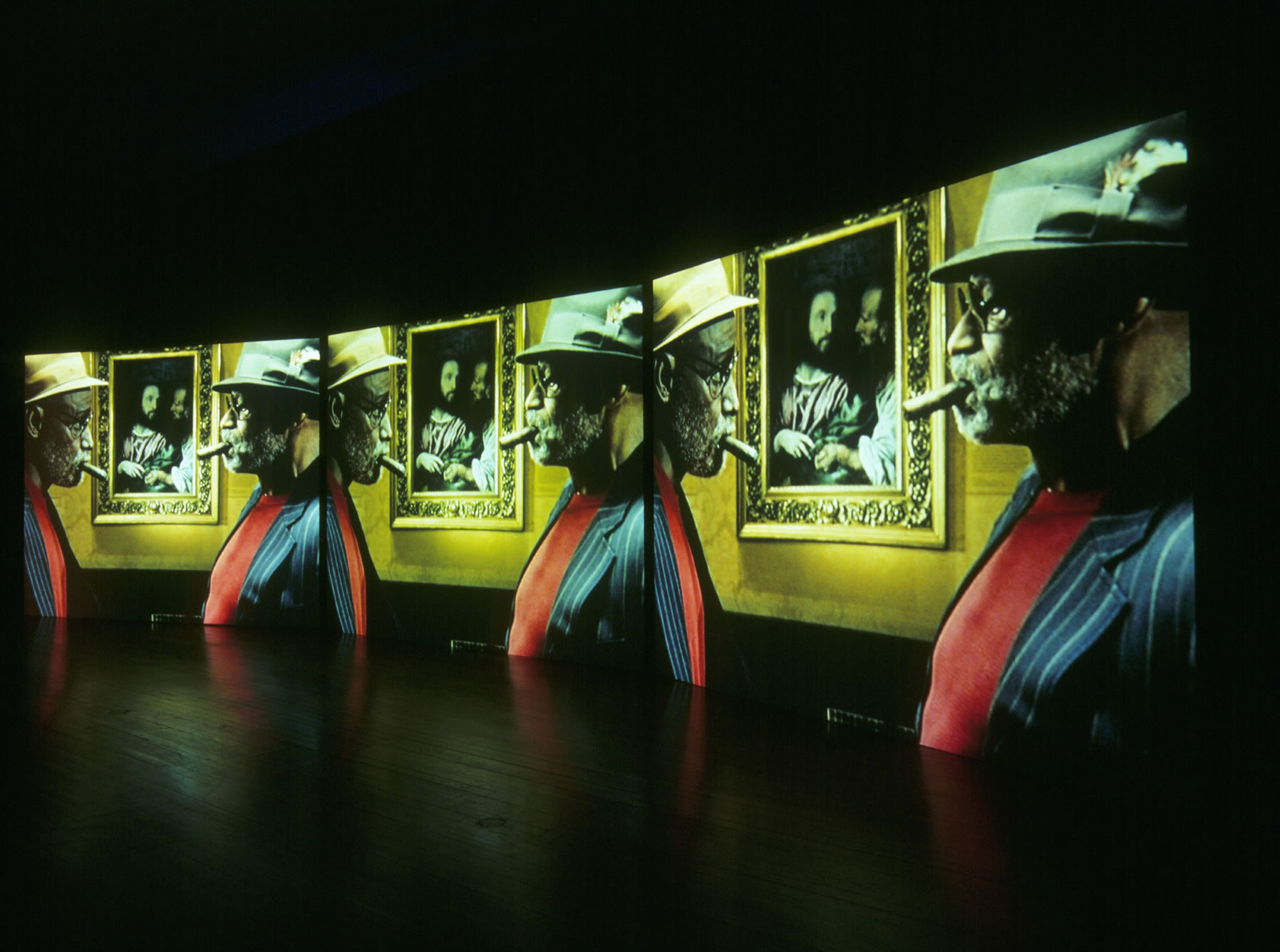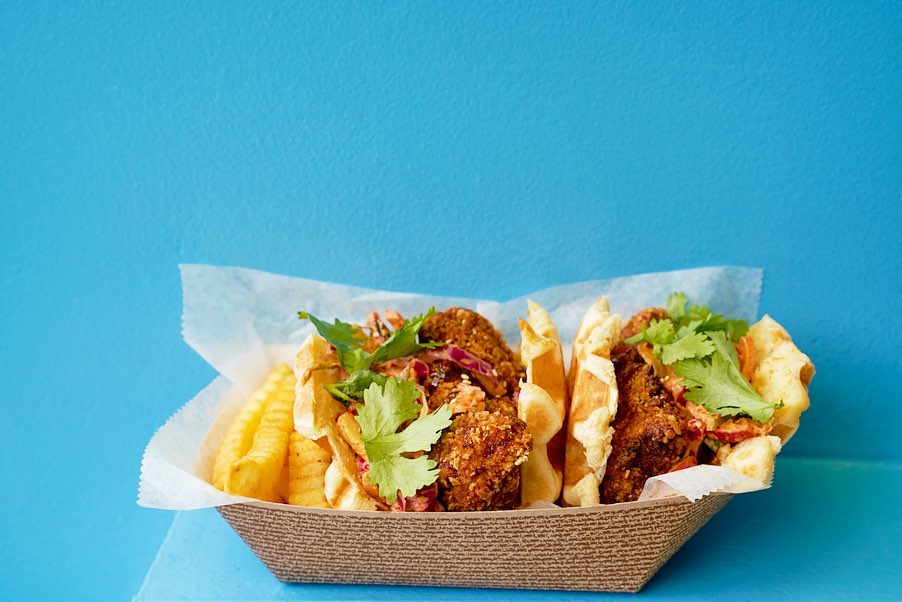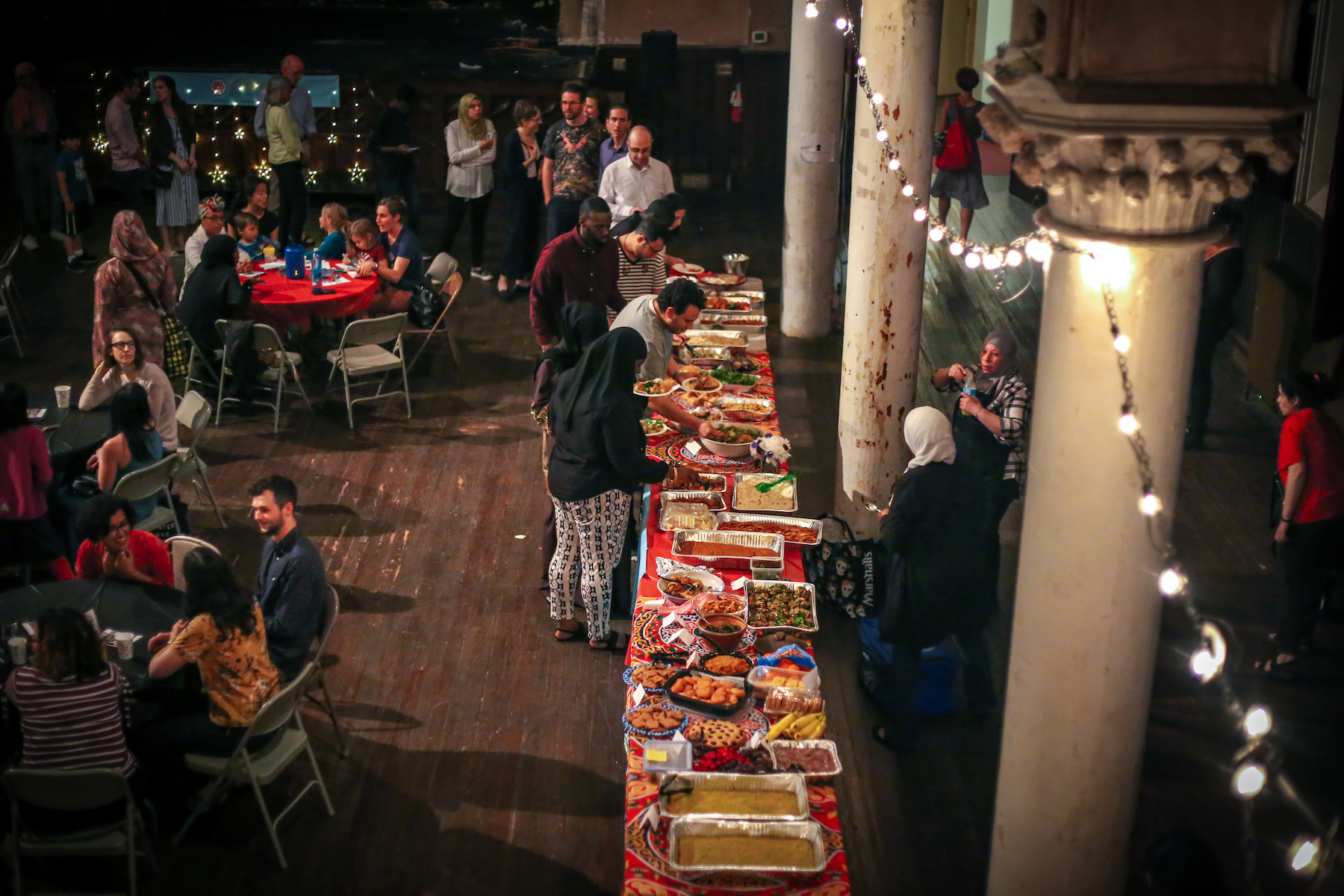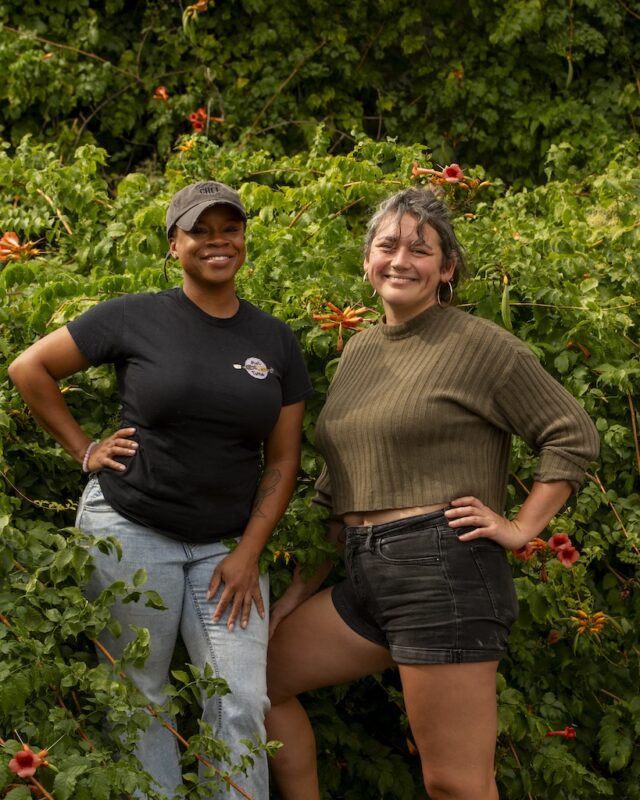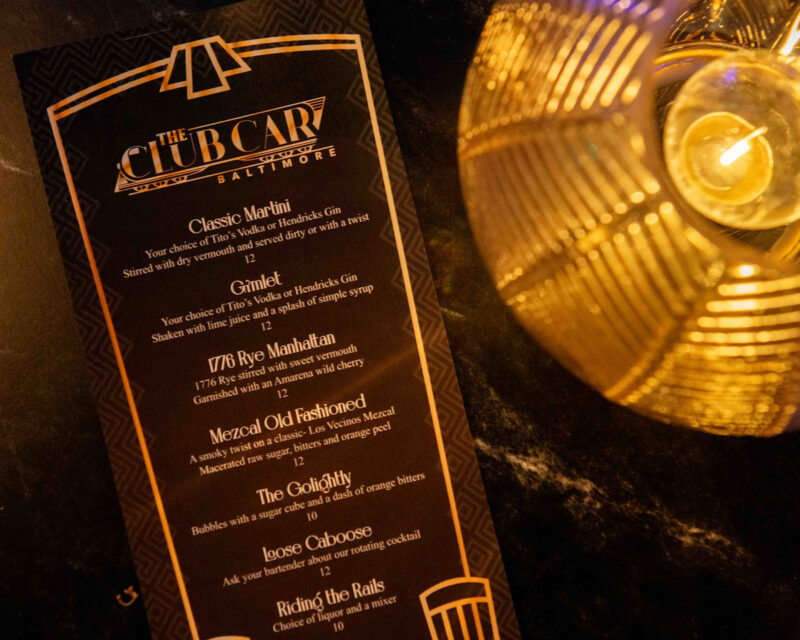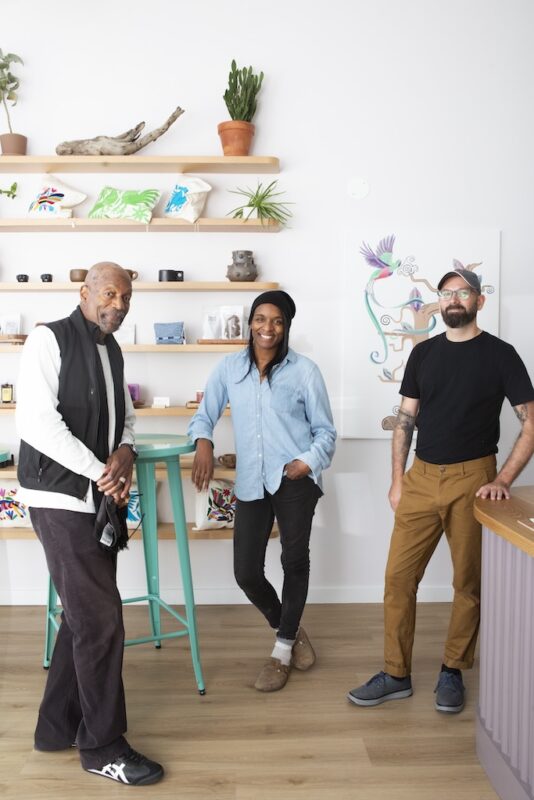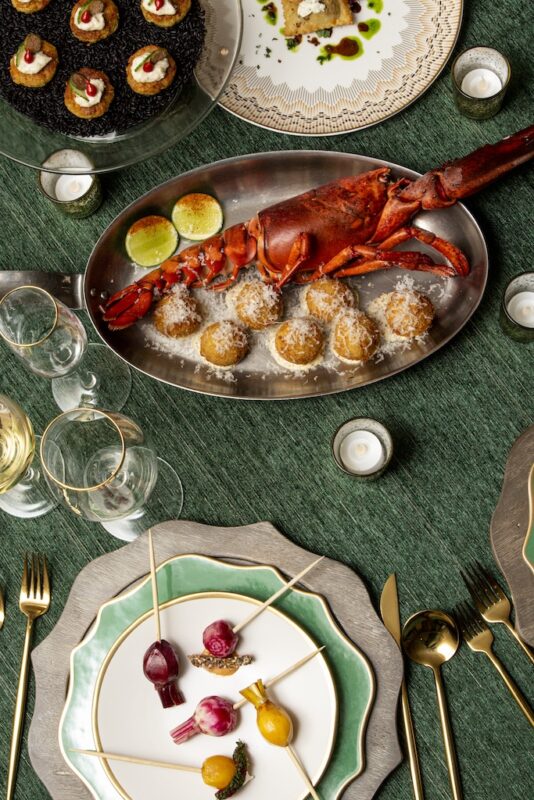At 6:30 a.m. outside of a downtown hotel, Chef Iman does the twist, flaunting her new shoes. The women of Mera Kitchen Collective are in good spirits, finally ready for the JFX Farmers Market after the morning kitchen hustle. Chef Mona hoots, Iman grins, and Emily kneels to get the perfect iPhone shot of Iman to send as a thank you to Charm City Run, which donated the polished sneakers Iman is wearing. No matter how silly, this impromptu photo shoot is a microcosm of the gratitude and community that Mera Kitchen Collective creates. Comfortable shoes are a must for chefs, and each Mera collective member provides one another with the holistic support they need to create fantastic food, from the feet up.
That kind of care is rare in the food industry, but the Baltimore-based Mera Kitchen Collective is figuring out how to push for equity through their worker-owned cooperative of immigrant and refugee women. Bolstering their livelihoods through collective power and excellent food, the cooperative is currently led by five people. Chef Iman Alshehab of Syria, Chef Zaid Degol of Eritrea, and Chef Mona Ahmed of Sudan and Egypt create mesmerizing and hearty menus based on flavors they grew up with. Aishah AlFadhalah of Kuwait and Emily Lerman, a US national with extensive experience in refugee rights, act as the logistical backbone of the collective: as the cultural interpreter and the operations manager, respectively.

Aishah AlFadhalah and Chef Mona at the JFX Farmers Market
Together the five worker-owners are guided by their shared values of equity, solidarity, empowerment, and building community. In practice, these values make for a radically different business model than what you see at most restaurants. The collective prices their food so that members can make a sustainable living wage, incorporates physical and mental health, and aligns itself with restaurants and organizations that support immigrant women.
Food is foundational. Through nutrients and feeling, by sharing food we build connections, along with each other’s bodies, minds, blood. “Food is an expression of love. It’s an extension of what you can create in your hands that’s transferable to another person,” declares Aishah. The singular worker-owner collective of refugee and immigrant women asks what if food could be transferable justice, or transformational equity?
“While we have the momentum, we have to set the bar for equitable pay and habits,” Emily says. “We have to say, we’re doing it and we’re making it work.”

Mera Kitchen Collective’s story involves the collaborative energy of more than 20 Baltimore food groups and individuals. In the early days, the collective hosted a dinner at the pizza place Hersh’s, giving Baltimoreans outside of their networks a chance to taste their food. The dinner sold out in a matter of hours. In November, Chef Iman will mark three years in America, but she marks her emotional arrival as that day at Hersh’s. “I made hommos, kibbeh, samosas, grape leaves,” Chef Iman recollects. “That day I felt, yes, I have arrived to America. I felt I have done something of value that I am proud of.”
Since that night at Hersh’s, the collective’s operation has expanded to the JFX Farmers Market, catering, weddings, and events like this year’s community Iftar. Due to the members’ tenacity and generous support from partners such as Alma Cocina, Clavel, Thread Coffee, and Red Emma’s, Mera is growing on their own terms.
For the refugee and immigrant women of Mera, the food industry’s celebration of “self-made” entrepreneurs highlights the clear imbalance of opportunity in the field. Building a viable and joyful food practice involves facing the barriers to the work, which are plentiful. The collective cites American individualism and a refusal to recognize privilege as part of the problem. “You have to provide everything for your own self, or ask your partner or your friend to be everything,” Aishah notes. “And there’s the misconception, ‘Yeah, I did this by myself,’ No! You didn’t do it by yourself.” Aishah continues. “There’s no such thing as bootstrapping if you don’t have a boot already, you know what I’m saying? You got a lot of help and you’ve got to acknowledge that.”
The group’s passion for equity is only matched by their passion for flavor. Their food is as nourishing as their concept. The name Mera comes from the Greek word meraki which means “when you do something so passionately that you leave a part of you in it,” Aishah explains.

Chef Iman
When I asked what exactly they hope to leave in the food, I was taken with Chef Iman’s answer: “My feelings. I feel like the kindness in me, I leave it in the food. If I know you’re eating the food and I’m making it, I put my feelings in the food so you can feel it too.”
Food’s capacity to make us feel is at the root of Mera’s curiosity. According to Aishah, that is consistent across their cuisine. “It has the energy of home, the energy of safety, of certainty,” she says. “Recipes that have been passed on for generations taste different. You feel this wisdom, it goes through the food.”
After tasting the cooking of Chef Mona and Chef Iman one Sunday morning at the JFX Farmers Market, I can attest to the notes of kindness and comfort in their food. Chef Mona’s Egyptian kushari and Sudanese lamb shawarma both showcased Mera’s combined senses of home.
Chef Mona has perfected her kushari—also transliterated as koshary, a staple of Egyptian street food—over the course of 15 years. It is made with rice and macaroni pilaf, spiced lentils, smoked tomato sauce, and a garnish of crispy fried onion. The smoked tomato sauce has a full-bodied heat that warms your mouth but doesn’t numb the subtle flavors within the dish. Cinnamon, black pepper, and cumin awaken the pilaf, complemented by the savory candy of crumbled fried onion.

Chef Mona’s kushari
The lamb shawarma is a hearty wrap of grilled lamb, onion, and pepper, coated in Sudanese peanut sauce and rolled in a grilled tortilla. Sudanese culinary traditions use peanuts in some of the most delicious ways on planet Earth, and this wrap is no exception. The velvety and tangy sauce pairs well with the strips of peppered lamb and sweet marinated bell pepper, rounding out the dishes. Shawarma and kushari can be oilier dishes, but Chef Mona delivers both with an exuberant lightness and brightness. The result is a gorgeous offering of complex comfort food.
With the foundational heart and flavor Mera Kitchen Collective pours into their work, making it sustainable for their livelihoods as well as accessible to everyone in Baltimore is the next step. Mera hosts free community events and evens their books with equitable quotes for weddings and large gatherings. “[Profit] margins in food are small and it’s tough,” Emily laments. “There are people who say ‘can you do appetizers for 100 people at 3 dollars a person?’”
The cooperative works with compassion for customers, and asks the same in return. “We’ve learned, some people are not our market. Some people have those values but don’t want to execute on those values,” Aishah states. “Some people want to see diversity, but they don’t want to know what equity costs.”
Regardless of the tough financial climate, generosity remains the group’s core demeanor. “When Iman went to physical therapy the other day, she brought 20 grape leaves for the receptionist, 20 grape leaves for the physical therapist,” Emily laughs. “And it wasn’t even the right day, she didn’t have an appointment!”

Chef Mona
A Food Prompt from Mera Kitchen Collective:
We encourage folks to pair two things together on a plate that they might not expect.
We do this in our Syrian saffron-infused smoked charcoal rice with Cameroonian plantains or a Sudanese peanut eggplant salad or Burkinabe black eyed pea fritters!
All quotes from Chef Iman were interpreted from Arabic by Aishah AlFadhalah.
Featured image taken by Giovanni Vargas at Mera Kitchen Collective’s Ramadan Community Iftar at the 2640 Space, May 2019.
Other photos by E Cadoux.
